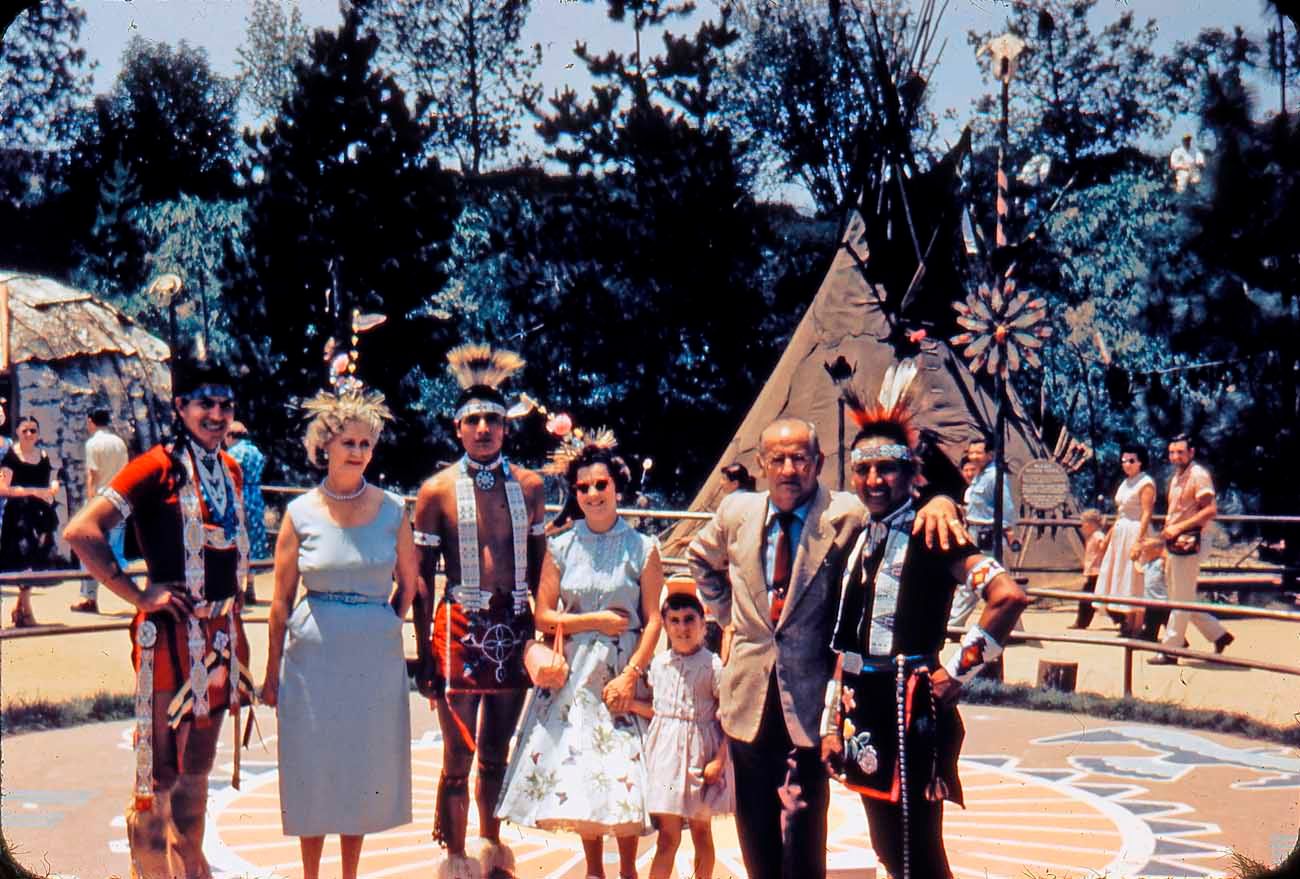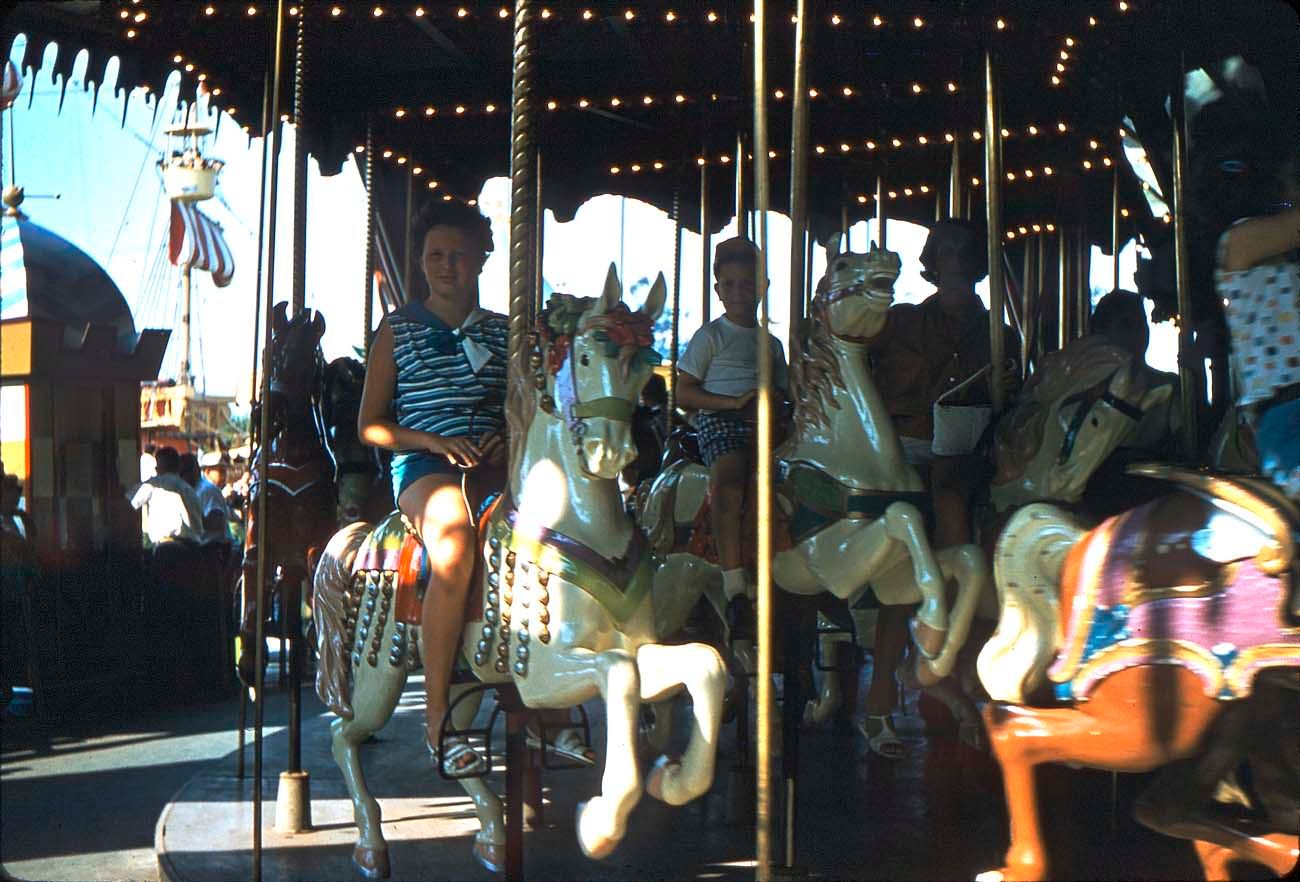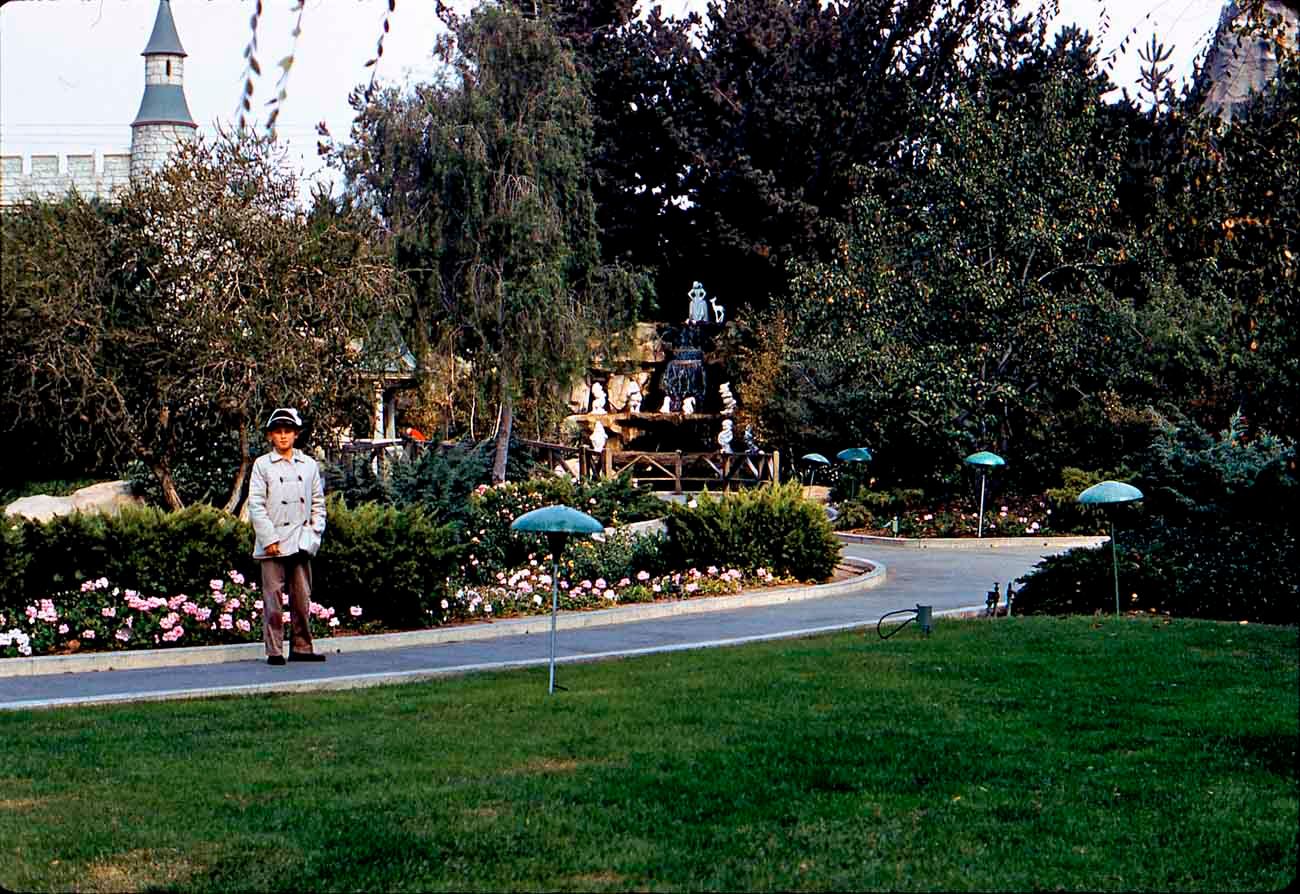Sunday, Nutty Sunday
Sometimes you find old slides from Technicolor, and ironically, they usually kind of suck. Unlike the old 3-strip Technicolor, which still looks amazing today (The Wizard of Oz for example), the slides tended to turn green...and this one was no exception, so I did the best I could to make it at least presentable. Here's a pretty nice view of the Indian Village, with a group of folks getting chummy with the Indian dancers. The little girl has her Donald Duck squeaky hat on, I still have mine from when I was a kid. 
A year or so later, this picture was taken of a young girl riding King Arthur's Carrousel. It's a bit dark, I know, but I like photos of the Carrousel back in the days when the horses were all sorts of colors (instead of the stable of albinos that it houses now).
And finally, here's sort of an unusual angle showing the Snow White Grotto. The Wishing Well is just visible through the foliage as well, and it was the site of a terrible tragedy. See that kid? He wasn't visible when the photo was taken...in fact he only appeared when it was developed. Some say he is the ghost of a boy who fell down the well while trying to get at all of the money at the bottom. And late at night, just before the park closes and it is quiet and lonely, listen closely...you just might hear his pitiful cries for help! 
Would I lie to you?

3 comments:
The Indian Village photograph is very nice. Uusually the image is of the dancers, not a posed shot like this. The girl in the second photo does not look very happy.
I think I have heard that little boys cries for help, or was that Dave @ Daveland getting his foot run over by a mega-stroller???
Nice job fixing the "greenies" I've noticed most of my Technicolor 16mm films hold up great, but once in a while, they are flat & green. Disney Technicolor's usually look great, but some "study" films look awful, was there a cheaper Technicolor process?
I don't know about later Technicolor films, but the original 3-strip Technicolor literally exposed 3 strips of black and white film (using a different filter for each strip). Through a fairly laborious dye-transfer process, they wound up with those famous, saturated colorful films that we've seen.
I'm guessing that for 16mm and 35mm camera film, they had to have used a more conventional film which did not have the brilliance or archival quality of the 3-strip process.
Post a Comment